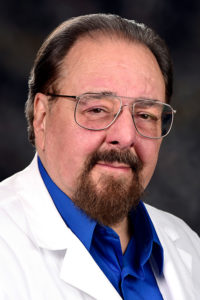How Can We Curb the Autoimmune Epidemic? New Paper Suggests a Path Forward
Both autoimmunity and autoimmune diseases are dramatically increasing in many parts of the world, notes Dr. Frederick Miller, a current NIH Scientist Emeritus and former head of the National Institute of Environmental Health Sciences Environmental Autoimmunity Group, a leader in the study of autoimmune diseases. Projections now suggest that autoimmune diseases will soon become one of the most predominant medical disorders in the US. In his newly released paper in Current Opinion In Immunology, Dr. Miller presents a concise review of the current state of autoimmunity, the drivers, and potential solutions for how to improve future outcomes.

“The evolving autoimmune epidemic will continue to have increasingly devastating impacts on those affected, their families and our society unless we focus much more attention and research into the causes, better diagnostics, and improved treatments and prevention,” said Dr. Miller.
Research links the increase to changes in diet; environmental exposures to pesticides, pollutants, drugs and other chemicals; increased obesity; sleep deprivation; stress; air pollution and the overall impacts of climate change. Those who are debilitated by autoimmune disease are all too aware of the catastrophic personal and professional impacts that chronic autoimmunity entails, and the devastation that care partners also encounter when assisting their loved one on their medical journey.
While there is an overall increase, just how many individuals are impacted is difficult to ascertain. Why? According to the paper:
- A lack of consensus in autoimmune disease definitions, and even agreement on which specific illnesses constitute the autoimmune diseases, impedes research and clinical care
- Many autoimmune diseases go undiagnosed, and variability in certain geographic regions and in ethnic and racial backgrounds make estimating the total numbers a challenge
- There are no centralized, standardized databases to collect relevant data
- There is no coordinated, orchestrated approach to research.
There is also a lack of consensus on both the direct and indirect costs to both the individual patient, and to society. Some estimates for overall direct costs to the economy are around $100 billion per year, but these are likely gross underestimates as many indirect costs are not included. These include the negative health impacts on the individual patient and his or her family, and the indirect costs resulting from lost productivity of the patient, the family and society overall, which are all significant but difficult to accurately assess.
Without action, the scenario will continue to worsen.
Dr. Miller outlines a path forward that the autoimmune community can collectively take and actions it can pursue. The National Academies of Sciences, Engineering, and Medicine recently recommended that an Office of Autoimmune Disease, Autoimmunity Research be established and recently, the Office of Research on Women’s Health was empowered by Congress to become the home for the new Office of Autoimmune Disease Research. The Academies’ recommendations for the new office included the following:
- Identification of a working, consensus definition
- Establishment of comprehensive, standardized autoimmune registries
- Coordinated research around an overall strategic action plan that maximizes resources and technological breakthroughs.
Dr. Miller suggests a number of possible approaches that may help impede the rise in autoimmunity including an international approach to the coordination of activities; the design and implementation of a combination of clinical, laboratory and environmental exposure features that will help patients achieve an earlier diagnosis; defining best practices for medical care, therapies and access to them; and identification of practical solutions for early prevention and detection.
Dr. Miller states, “The cost of inaction will be profound, and only by dedicating additional resources now can we decrease the future frequency, morbidity, mortality, and costs of these conditions.”
Read the entire paper here.*
*Note about accessing the paper: Patients and caregivers can make requests for individual papers related to medicine and healthcare at no cost. These papers can be requested by e-mailing [email protected]. We aim to provide the requested articles within 24 hours. Please include the article title and author(s), date published, and/or the URL if available. This will ensure that our team can locate the requested content as quickly as possible. In addition, patients and caregivers who participate in the publication of an article and have a preference or need to publish that article open access, but lack the funds for the Article Publishing Charge, can make a request for a waiver of the APC by emailing [email protected] . Please include the article title; author(s); and the journal title you have submitted the article to.
Join our email list
Receive the latest blog articles, news, and more right to your inbox!
Related articles you might be interested in

Defying the Odds: Tiffany’s Journey

Rare Autoimmune Disease: Anthony’s Journey with Vasculitis

Multiple Autoimmune Diseases: Meet Tessa

Collaborating for Change: Meet Laura Wingate
Find more resources on autoimmunity
Learn more about autoimmunity, diagnosis tips, how to find a physician, and more.